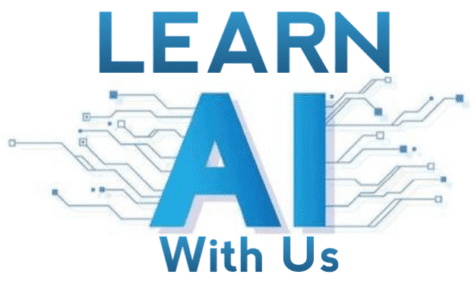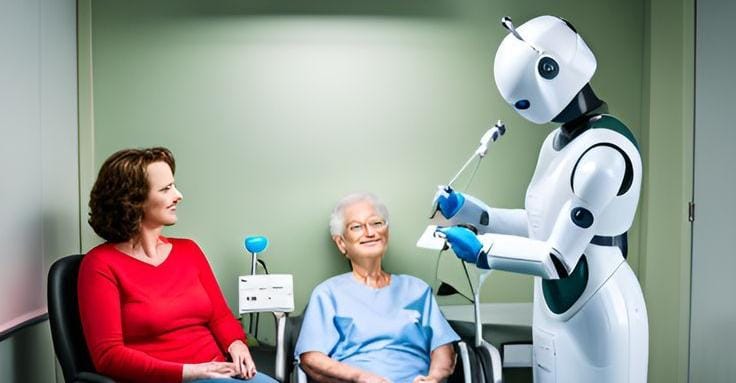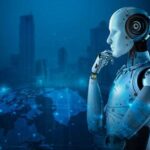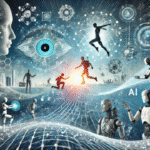How AI Is Revolutionizing Healthcare in 2025
Artificial Intelligence (AI) is no longer a buzzword—now it’s a full-fledged reality that’s transforming the way we live, work, and above all, the way we remain healthy. In 2025, healthcare AI has moved beyond the world of science fiction fantasy and is now at the forefront of medical revolution. From precise diagnostics to customized care, AI is transforming healthcare to a new level.
Brief Overview of AI in Healthcare
Let’s begin at the start. AI in healthcare is the application of sophisticated algorithms and computer software to simulate human thinking in the analysis, interpretation, and knowledge of complex medical and healthcare information. It’s no longer how to replace physicians—it’s how to enable them.
Why 2025 Is a Pivotal Year for AI in Medicine
2025 is a watershed year because the combination of AI with big data, cloud computing, and biotech has reached critical mass. Health-tech startups are flourishing, hospitals are automating their processes, and patient demand is changing the game. AI is at the center of all these changes.
How AI Is Revolutionizing Healthcare in 2025
How AI Is Revolutionizing Healthcare in 2025
Understanding AI in the Medical Context
What AI Means in Healthcare
When we discuss AI in medicine, we’re discussing machine learning, natural language processing (NLP), computer vision, and robotics, all tailored for medical applications. All of these technologies assist in pattern recognition and decision-making based on huge datasets.
Evolution of AI in Medicine Over the Years
From 80s rule-based expert systems to the neural networks of the present, AI has come a long way. What used to take teams of experts to accomplish can now be accomplished in seconds using a trained algorithm.
AI-Powered Diagnostics
Increased Accuracy and Speed
Imaging and Radiology
AI algorithms now read X-rays, MRIs, and CT scans more quickly—and sometimes better—than radiologists. Applications such as Google’s DeepMind and IBM Watson Health are leading the charge.
AI for Pathology and Lab Testing
AI helps pathologists identify tiny abnormalities in blood examinations, biopsies, and even urine tests. It avoids mistakes and assures quicker diagnosis.
Case Studies and Applications
AI has facilitated tuberculosis diagnosis in rural Indian clinics. In the US, AI is lowering errors in mammograms for breast cancer detection. The outcomes are simply incredible.
Tailored Treatment Plans
AI-Driven Predictive Analytics
AI uses patient history, genetic data, and lifestyle information to predict potential health issues and recommend preemptive treatment. It’s like having a personal doctor that never sleeps.
Genomic Data and Personalized Therapies
AI decodes genetic blueprints to recommend targeted treatments—especially in cancer care. What used to take months now happens in days.
Virtual Health Assistants and Chatbots
24/7 Patient Interaction
These digital assistants can book appointments, remind patients to take meds, or answer basic health queries—anytime, anywhere.
Reducing Burden on Healthcare Staff
Hospitals are seeing reduced call center loads and improved patient satisfaction. It’s a win-win.
Remote Patient Monitoring with AI
Smart Wearables and IoT Integration
Think Apple Watch and Fitbit—on steroids. These wearables track heart rate, blood oxygen, sleep patterns, and more, sending real-time data to doctors.
Real-Time Health Data Processing
AI rapidly scans incoming information and warns patients and physicians of any anomalies. It’s preventive care in its finest form.
AI in Drug Discovery and Development
Faster Research Timelines
AI reduces the 10-year average timeframe for drug development by extrapolating molecular function and drug compound success rates.
AI-Driven Clinical Trials
Recruitment, data analysis, and monitoring—All AI-powered—speed up trials and streamline them.
AI and Administrative Efficiency
Automated Scheduling and Billing
AI performs mundane tasks such as scheduling, billing, and insurance claims, allowing human workers to focus on more important jobs.
Handling Electronic Health Records (EHRs)
AI tidies up EHRs, eliminating duplicates and discrepancies, and making them clean and readable to clinicians.
Ethical Issues and Concerns
Data Privacy Issues
With big data comes big responsibility. Patients are concerned about how their sensitive information is handled. Encryption and blockchain technology are some of the solutions on the way.
Algorithm Bias and Fairness
AI machines are only as effective as the data used to train them. Datasets that are inclusive and diverse are important in order to prevent biased conclusions.
Future of AI in Healthcare Beyond 2025
Merging Quantum Computing and AI
Quantum computers will compute medical information at dazzling speeds, allowing for discoveries we can’t even conceptualize today.
AI and Global Health Challenges
From the ability to predict pandemics to handling health emergencies in far-flung areas, AI’s impact on a global scale is only just starting.
Conclusion
The manner in whichHow AI Is Revolutionizing Healthcare in 2025 is nothing short of remarkable. It’s quick, it’s intelligent, and it keeps improving. From early detection and pharmaceutical discovery to customized care and patient empowerment, AI is mapping out a future where health care is more efficient, precise, and human-driven than ever before. With medicine and technology meeting at the crossroads, one thing is very evident: AI is not only augmenting healthcare—it’s revolutionizing it.
FAQs
What are the biggest advantages of AI in healthcare?
AI enhances diagnostic accuracy, lessens medical errors, speeds up drug development, and tailors treatment, all while minimizing healthcare costs.
Is AI safe for diagnosing diseases?
Yes, with the use of human oversight, AI can maximize diagnostic accuracy and minimize human error, making healthcare safer.
How does AI make treatments more personalized?
AI employs patient information, such as genomics and history, to design personalized treatment plans that are more effective and targeted.
What about healthcare job losses due to AI?
Certain administrative positions might change, but AI generally amplifies human roles instead of substituting them—enabling healthcare workers to concentrate on advanced tasks.
How will AI affect global healthcare systems?
AI can democratize healthcare by enhancing access, lowering costs, and providing uniform quality care even in rural regions.



